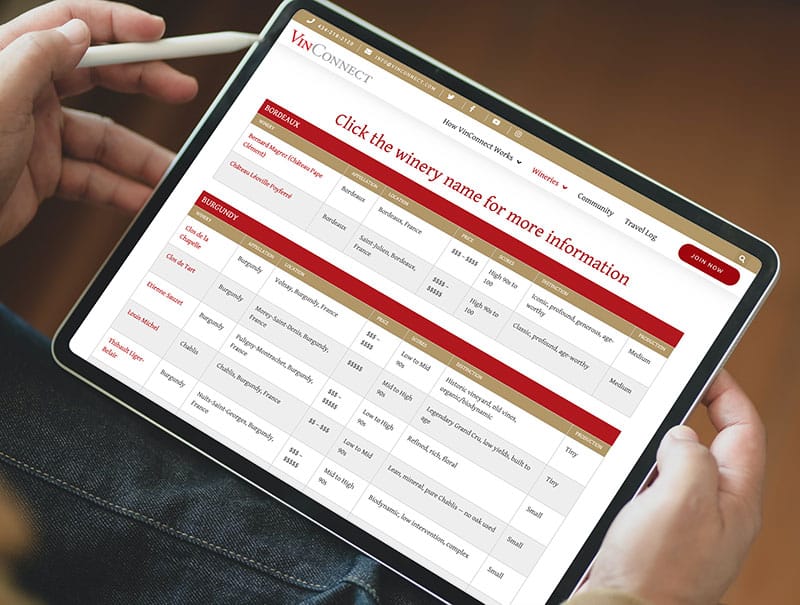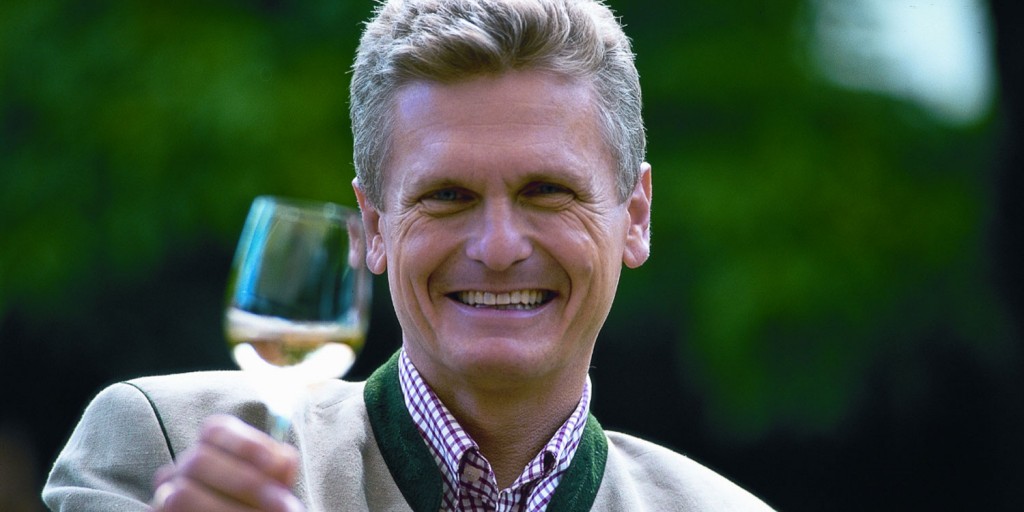About Robert Weil
Weingut Robert Weil, considered one of the Rheingau’s younger wine estates, was founded in 1875 in the small village of Kiedrich, about an hour west of Frankfurt along the Rhein River by Dr. Robert Weil, a German professor at the Sorbonne turned journalist and finally, winegrower. Today, Dr. Robert Weil’s great-grandson Wilhelm runs this 85 hectares estate, carrying on the uncompromising, quality-oriented vineyard and cellar practices that have been the hallmark of the winery for four generations.
The estate is made of three exceptional vineyard sites that lie just opposite the winery in the foothills of the Taunus Mountains – Kiedricher Klosterberg, Kiedricher Turmberg and Kiedricher Gräfenberg. At an altitude of 240 meters (780 feet) these steep southwest-facing hillsides are some of the most exceptional vineyards sites in the Rheingau. Good exposure, high temperatures and good air circulation from the Taunus Mountains make these nearly perfect sites for growing late-harvest Riesling. The grapes do so well on the vine that they often ripen well into November.
Kiedrecher Turmberg and Kiedricher Grafenberg are often considered the two most exceptional vineyard sites, the former has a slate base with thin stony topsoil and is considered a Premier Cru by German classifications (Erste Gewächs); the latter is undisputedly one of the greatest vineyards in the Rheingau. A Grosses Gewächs site (Grand Cru), the soil in the Grafenberg vineyard is similar to that of the Turmberg however the topsoil is deeper and heavier, allowing for better water retention. Both of these vineyards produce wines with fine acidity and a distinctive mineral tone and are marked by elegance and finesse.
Wilhem Weil is a firm believer that the quality and identity of a wine originate in the vineyard. Thus, the estate uses only environmentally friendly tactics in the vineyards and relies on strict pruning and canopy management to reduce yields and achieve fully ripened crops. Harvest generally begins in October and lasts eight to ten weeks, during which rigorous sorting forces harvesters to make round upon round through the vineyards, sometimes picking individual berries based on their ripeness levels. The grapes are pressed and fermented in stainless steel tanks and traditional oak and acacia casks called Rheingauer Stukfass (1200 liters) for approximately 6 months. The resulting wines are stirred and racked as needed throughout the aging process and gently filtered before bottling.



…the most consistently brilliant winemaker in the Rheingau.